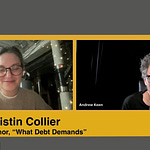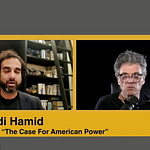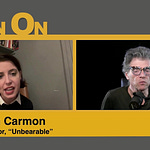If there’s anyone who knows the value of a pardon, it’s Jeffrey Toobin, the publicly shamed and now rehabilitated CNN legal analyst. In his latest book, The Pardon: The Politics of Presidential Mercy, Toobin examines the history and evolution of presidential pardons, focusing particularly on Gerald Ford's controversial pardon of Richard Nixon. Toobin argues that while historical opinion has shifted to favor Ford's decision, he believes the pardon was wrong as it prevented Nixon’s accountability for Watergate related crimes. He also criticizes recent pardon controversies, including Trump's pardons of January 6th rioters and Biden's pardon of his son Hunter. Toobin expresses concern that Trump's use of pardons reflects an authoritarian approach to power, favoring political allies over the rule of law.
Here are the 5 KEEN ON Takeaways from this conversation with Jeffrey Toobin:
Presidential Pardon Power is Unique: Toobin emphasizes that the pardon power is anomalous in the American system because it has no checks and balances - it comes directly from monarchical powers and allows presidents to act unilaterally without oversight from courts or Congress.
Mercy vs. Power Distinction: Toobin argues there's a meaningful difference between pardons used for mercy (like Obama's clemency for low-level drug offenders) versus pardons used as exercises of power (like Trump's pardons of January 6th rioters or Biden's pardon of his son Hunter).
The Nixon Pardon Legacy: While historical opinion has shifted to view Ford's pardon of Nixon more favorably, Toobin believes it was wrong because it prevented accountability and reinforced the idea that powerful people are above the law.
Evolution of Presidential Immunity: Toobin highlights a dramatic shift in legal thinking from the Nixon era to today. In the 1970s, everyone agreed presidents could be prosecuted after leaving office, whereas the current Supreme Court has ruled presidents cannot be prosecuted for official actions even after their term.
The Increasing Politicization of Pardoning: Toobin observes that pardons have become increasingly partisan and transactional, especially in recent years. He notes that even the legal community is now deeply divided along political lines regarding controversial pardons, with little or no unified "legal establishment" perspective remaining.
Jeffrey Toobin, the longtime CNN legal commentator, is the author of ten books, including The Nine: Inside the Secret World of the Supreme Court, The Run of His Life: The People vs. O.J. Simpson, Homegrown: Timothy McVeigh and the Rise of Right-Wing Extremism, American Heiress, The Oath, Too Close to Call, and A Vast Conspiracy. A magna cum laude graduate of Harvard Law School, he lives with his family in New York.
Named as one of the "100 most connected men" by GQ magazine, Andrew Keen is amongst the world's best known broadcasters and commentators. In addition to presenting the daily KEEN ON show, he is the host of the long-running How To Fix Democracy interview series. He is also the author of four prescient books about digital technology: CULT OF THE AMATEUR, DIGITAL VERTIGO, THE INTERNET IS NOT THE ANSWER and HOW TO FIX THE FUTURE. Andrew lives in San Francisco, is married to Cassandra Knight, Google's VP of Litigation & Discovery, and has two grown children.










